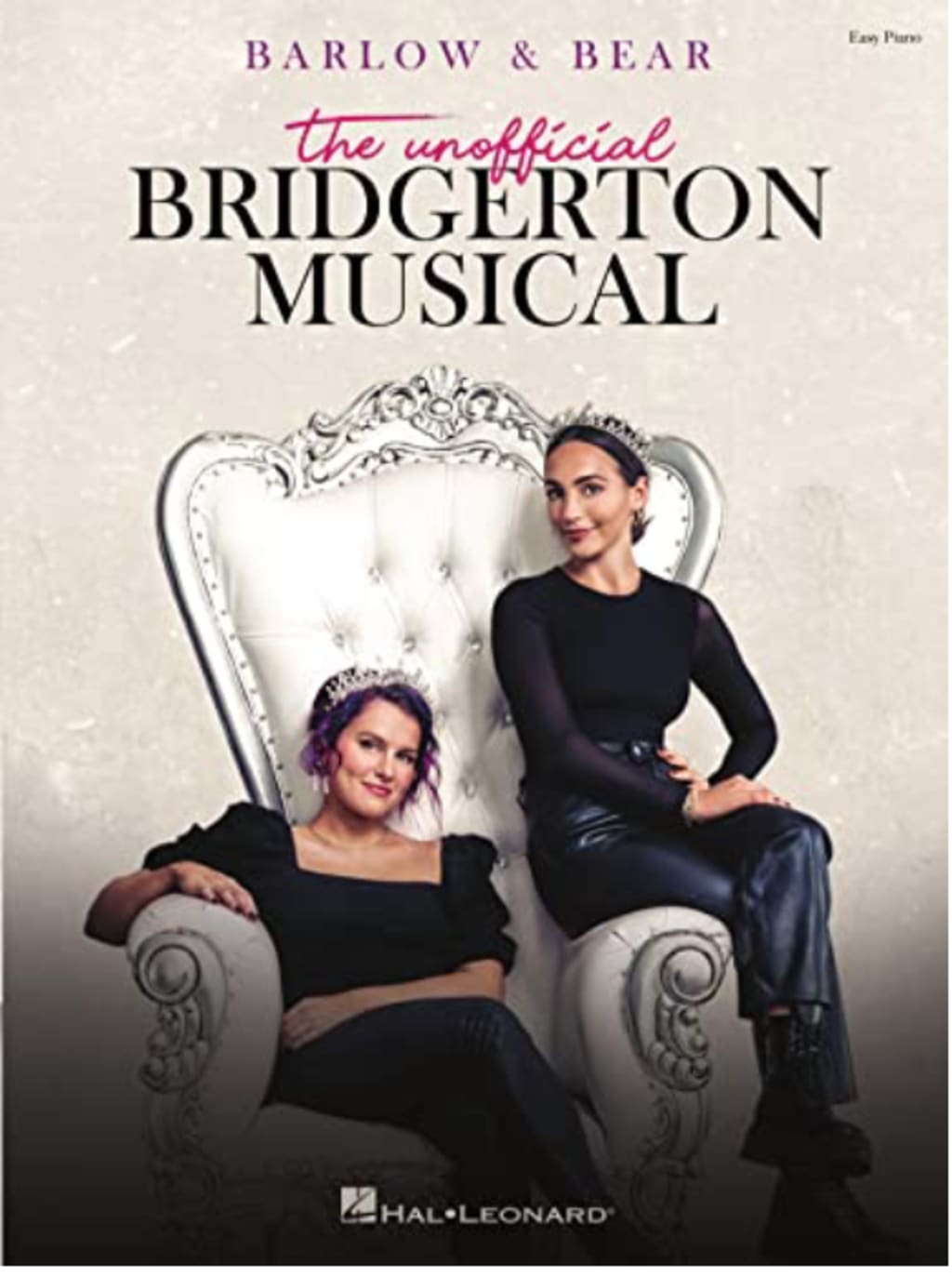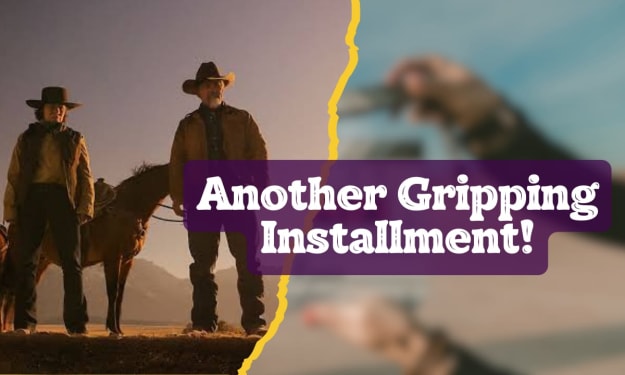The Bridgerton Scandal
Netflix vs Barlow and Bear

If you've been living under a rock, or just determinedly avoiding YouTube and Social Media for whatever entirely valid reason, you may have missed the news that Netflix has filed a lawsuit over copyright infringement against independent artists Barlow and Bear.
Big deal, so what? Big Media is always kicking up a legal fuss. Support small creators, right?
Wrong! This case literally could not be more open-and-shut, and Netflix, for once, is entirely in the right! It's a big deal, because this could be a Landmark case for fan content creators, and not in a good way.
The Backstory
So, for those somehow unaware...
Abigail Barlow and Emily Bear went viral as "the Bridgerton Girls" on TikTok, writing and performing the soundtrack to a non-existent Bridgerton musical. They then put the album on Spotify and iTunes, and won a Grammy for it.
They also staged a charity benefit using those songs in 2021, giving struggling West End actors a chance to perform. Netflix told Barlow and Bear that they didn't give permission, but wouldn't stand in the way of the benefit, either.
Netflix never, at any point, gave offical or unofficial approval for Barlow and Bear to use the Bridgerton name, image, characters, or anything associated with the Bridgerton Franchise, and warned them to stick within Fair Use.

That's important, because when Barlow and Bear went on to perform a sold out production at the Kennedy Centre in Washington DC, (one of six US cities where Netflix was operating the Official Bridgerton Experience, by the way...) with plans for another at the Royal Prince Albert Hall in the UK... the marketing implied that Netflix had endorsed them. Bridgerton merchandise and VIP packages were on offer, and directly conflicted with the Official Bridgeton Experience, happening in the same city.
Netflix did offer for Barlow and Bear to operate as a licensed subsidy of the Bridgerton Copyright, but Barlow and Bear turned them down.
That's also important, because the Unofficial Bridgerton Musical is essentially fanfiction, and the No. 1 caveat of fanfiction is that if the source is under copyright*, YOU CANNOT MAKE MONEY OFF IT!
Viral TikTok performances (that may benefit the creators via ad revenue)? Fine. Spotify album? Go wild. Charity concert? Iffy, but it's non-profit and for a good cause that Netflix would look bad for and wouldn't benefit from opposing, so they'll allow it.
Sold-out prestigious venue where many Broadway musicals had their trial-runs, with tickets selling for up to $149, with heavy implications that the Unofficial Bridgerton Musical is now the Official Bridgerton World Tour? Very much NOT OK, and I can't believe that Barlow and Bear's agents and lawyers (Which they must have by now, you can't put on a concert of that size without someone to sort through the legal stuff and negotiate on your behalf.) thought they could actually get away with this!
Maybe they were counting on the court of public opinion, with Barlow and Bear's millions of followers touting Netflix as a money-hungry mega-corporation only going after the young women because they were making a profit now, but didn't count on the billions of fan-writers, fan artists who played by the rules and see this lawsuit as two idiots who thought rules didn't apply to them and now risk ruining fanfiction for everyone.
Back To The Present...
I'll admit, I was only tangentially aware of Barlow and Bear before all of this. I knew they existed, because their album popped up when I was looking for the actual Bridgerton Soundtrack - say what you want about the show, their classical covers of modern pop is glorious.
Like many, I assumed that they'd gotten permission and approval from Netflix by the time they'd won the Grammy, and was shocked by the details of how much they'd gotten away with, and worried for what it meant going forward.

The Legal Stuff...
I'm not a lawyer, but after more than two decade writing fanfiction, I'm very aware of the legal constraints around what I can and can't do. Last November, I got a month-long suspension from Archive Of Our Own, a popular fanfiction website, after telling readers that I would be taking down my Jane Austen Fanfiction "Changeling Child", which at that point I'd been posting on AO3, because I planned to publish it, and dropped a link to the pre-order.
There was nothing wrong with me publishing Jane Austen FanFiction; the copyright expired almost a century ago, and Jane Austen Fanfiction (JAFF) forms an entire sub-genre of Regency Romance fiction.
Where I went wrong was in saying as such on a fanfiction site; Archive of Our Own is strictly Non-Profit, and for good reason. Their entire existence depends on the Fair Use Act. Nothing hosted on that site can be for profit, not even links to Ko-Fi, Patreon, or PayPal links to support your favourite authors.
It's the same with any fan-generated content: you can't be seen to make a profit without being licensed, and certainly not without permission.
When he was writing Broadway Hit "Hamilton", Lin-Manuel Miranda sought and received permission from Ron Chernow, who wrote the official biography of Alexander Hamilton. It was probably un-necessary; there are enough differences that Miranda probably could have got away with a Fair Use argument, but he did it anyway. He also sought permission and approval from Gilbert and Sullivan and anyone else whose music he referenced or was inspired by. ("Right Hand Man" has George Washington state that he is "the very model of a modern major general", a well-known line in G&S's "Pirates of Penzance".)
Miranda was planning to make a hit, and he didn't want to sink his potential success by opening himself up to copyright infringement.

Exceptions...
There are exceptions when it comes to borrowing without permission.
Parody Art, where everyone can clearly tell what it is you're mocking or satirizing, but no-one would even think of claiming that they're the same thing. "The Unfinished Spelling Errors of Bolkien", a one-man production by Martin Pearson, is a gloriously funny example.
The Fair Use Act also exists in various forms across different countries, allowing references, excerpts and quotations up to a certain amount to be used without permission or licensing. How much varies depending on location and media type, but is usually up to 5% as the absolute maximum.
Transformative Works are works that may have been inspired by something, but are different enough that they are their own intellectual property, and can be argued are merely taking advantage of popular trends. See every YA dystopia with an unlikable teenage protagonist, arbitary divisions of society, and a pointless love triangle trying desperately to replicate the success of Suzanne Collins's Hunger Games...
There's also the small-time creatives that just aren't worth going after, both because of the Optics, and because Big Media would be chasing pennies when you compare what they'd spend on lawyers to what they'd get in damages. (Less, really, but fractions of pennies aren't a thing anymore. 'Iranian Rial to US Dollars' is a better comparison, but not everyone spends as much time researching money values for use in fiction as I do.)
Ever been to ComicCon, Supanova, or a fan convention, and come home with an armful of fan merch? The people creating that merch, including fanart prints, are either licensed, or charging only just enough to cover their estimated costs of production, travel, stall hire, etc. For Big Media to sue them would be nothing more than a waste of time and effort.
Instead, they treat those fan-artists as free publicity - I can't count how many fandoms I've discovered after seeing artwork or cosplay at a Con, or fanfiction in a favourite author's bookmarks - and they're right to do so. None of those fan creators are making any significant money from their art - most of them will have day jobs, and the ones that don't will rely on sponsorships and Patreon or Ko-Fi subscriptions for the majority of their income. The amount any studio trying to sue would be awarded by a court would be in the realm of a few thousand dollars, at most, in exchange for a horrible reputation and the loss of millions of fans once that story hit the news. (There are people who still won't read Anne Rice on principle for the way she went after fanfiction writers in the 90s)
That is probably also why Netflix didn't crack down harder on Barlow and Bear until the Kennedy Centre production, where they well and truly sprinted past stepped over the line.
A couple of viral TikTok videos? Not worth making a fuss over, and it wasn't like Barlow and Bear were the only TikTok artists doing something Bridgerton related.
A charity benefit? Eh, a bit iffy, but openly banning or shutting down something intended to support struggling West End performers who had been unemployed during COVID would be even worse. Netflix will pretend it didn't see anything.
A ticketed performance at the Kennedy Centre, probably resulting in a five-figure profit even after they pay all the other people involved? Pump the breaks, Barlow and Bear did what now? Nameless Assistant #39, get our lawyers on this, immediately!
Items For Additional Consideration
I don't know under what conditions Bridgerton writer Julia Quinn sold the rights to Netflix, but there was probably something in there about enforcement of exclusivity. The short version of that bit of legalese is, if Netflix wants to keep the exclusive rights to the Bridgerton intellectual property, then they are responsible for keeping it exclusive. Not seeking legal action against Barlow and Bear after they started profiting without a license might actually be a violation of that very copyright agreement with Ms Quinn.
Barlow and Bear had several warnings before getting to this point. Eventually, Netflix had to either enforce their rights, or look like an older sibling huffing "wait until Mum/Dad gets home!" while the younger brats trash the house. Netflix isn't powerless or without influence, and the last thing they want is to give people the impression that they are.
Netflix is actually going out of their way to avoid accidentally sweeping up anyone except Barlow and Bear in this. They're not saying that Fanfiction and other derivative works aren't ok, only that if you want to profit off something under copyright, maybe get permission and a license first. They're also only seeking damages and for Barlow and Bear to cease any further Bridgerton-related stuff until they have a licensing agreement in place. That's surprisingly generous of them, and considerate of other fan-creatives.

If you liked this story, leave a heart, a comment or a tip and share it around, and check out my other work on Medium and Amazon.
About the Creator
Natasja Rose
I've been writing since I learned how, but those have been lost and will never see daylight (I hope).
I'm an Indie Author, with 30+ books published.
I live in Sydney, Australia
Reader insights
Outstanding
Excellent work. Looking forward to reading more!
Top insights
Easy to read and follow
Well-structured & engaging content
Expert insights and opinions
Arguments were carefully researched and presented
Eye opening
Niche topic & fresh perspectives
On-point and relevant
Writing reflected the title & theme






Comments (2)
I have definitely been living under a rock. You have piqued my interest enough with this piece to make me want to dive deeper into the saga, however. Thank you for sharing! I love your witticisms!
Great insights on the saga! I found myself saying "ooh" in a disapproving way and devising ways to incorporate it into my English class.